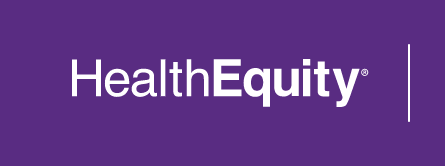An important part of any business is to attract and retain highly-skilled workers. Most employers provide benefits ranging from paid vacation time and tuition reimbursement to bonuses and raises.
And then there are health benefits, which can be one of the more expensive - if not the single most costly - benefits you offer employees.
Offering health savings accounts (HSAs) is a great way to provide health benefits, and can even be considered an employee retention strategy because, among other things, HSAs empower employees to take control of their finances, health and retirement.
HSAs encourage employees to take control of their finances
With ever-increasing medical costs looming, HSAs provide a vehicle for employees to save for those expenses. HSAs provide three tax advantages: Employees can contribute, grow and spend HSA funds on qualified medical expenses, all tax free.1 In addition, HSAs are paired with high-deductible health plans, meaning employees spend less on premiums. Contributing those savings to their HSAs can lead to even more tax savings. Another approach is for employees to pay for qualified medical expenses out-of-pocket while their HSA funds earn interest. Later, employees can use saved receipts to reimburse themselves from their HSAs. There is no expiration date for reimbursing out-of-pocket spending.
HSAs encourage employees to take control of their health
HSAs help transition your employees into a more consumer-driven healthcare mindset. Consumer-driven healthcare means employees take more of an active role in their healthcare decisions, including shopping around for the best, lowest-cost care and prescriptions. This approach, coupled with proper education and engagement, can help employees make wise healthcare decisions and ultimately save money.
HSAs encourage employees to take control of their retirement
Employer Benefits Research Institute issued a report stating the average couple will need $301,000 to have a 90 percent chance of having enough money to cover out-of-pocket medical expenses in retirement. One advantage of an HSA is that funds carry over every year. This means HSAs can be used as part of a retirement strategy to cover medical care costs during retirement. And, if the employee also has a 401(k), they can grow both accounts together and potentially set themselves up for a more comfortable retirement.
Conclusion
HSAs can help your employees take control of their finances, health and retirement. By offering HSAs to your employees and helping them understand the benefits, you create an employee retention strategy that sets your employees on a path for saving now and in the future.
To learn more about how to take advantage of the many other benefits that HSAs provide, visit www.healthequity.com/HSAlearn.
1 HSAs are never taxed at a federal income tax level when used appropriately for qualified medical expenses. Also, most states recognize HSA funds as tax-free with very few exceptions. Please consult a tax advisor regarding your state's specific rules.
HealthEquity does not provide legal, tax, financial or medical advice. Always consult a professional when making life-changing decisions.


